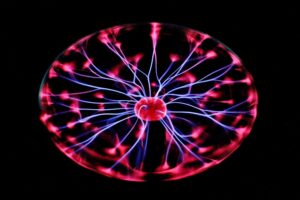Are you or someone you love struggling with substance abuse? You’re not alone. Addiction is a complex disease that affects millions of people worldwide, and it requires a multifaceted approach to overcome. Fortunately, the science of addiction recovery has come a long way in recent years, providing us with evidence-based strategies for breaking free from the grip of addiction. In this blog post, we’ll explore some of the most effective ways to overcome substance abuse and achieve lasting recovery. Whether you’re just starting your journey or have been in recovery for years, this guide will provide valuable insights into how to beat addiction once and for all.
The Neuroscience of Addiction
The Neuroscience of Addiction
When someone is addicted to a substance, their brain chemistry changes. These changes can be seen in both the structure and function of the brain. Addiction alters the brain in ways that make it difficult for a person to control their use of the substance, even when they want to stop.
The changes that addiction causes in the brain can lead to cravings and compulsions to use, despite negative consequences. Over time, as addiction progresses, these changes become more and more pronounced. This is why it’s so difficult for people to quit on their own – their brains have been changed by the addiction and are working against them.
Fortunately, just as addiction can cause changes in the brain, recovery from addiction can also help to reverse some of these changes. With treatment and support, it is possible for people to overcome addiction and regain control over their lives.
The Psychology of Addiction
The Psychology of Addiction
When it comes to addiction, there is no one-size-fits-all solution. The addicted brain is unique and complex, and requires a tailor-made approach to treatment. However, there are some general principles that apply to the psychology of addiction and can help inform an effective recovery plan.
Addiction hijacks the brain’s natural reward system, causing the person to seek out the addictive substance or behavior despite negative consequences. This is because the brain starts to associate the substance or behavior with pleasure and satisfaction.
Over time, the addicted brain becomes increasingly tolerant to the effects of the substance or behavior, needing more and more to get the same desired effect. This can lead to dangerous levels of consumption and ultimately overdose or death.
Addiction also alters how we think and behave. People with addiction often become isolated as they prioritize their habit over everything else in their lives. They may lie or engage in criminal activity to get their fix. And they may display risky behaviors that put themselves and others in danger.
Fortunately, there is hope for those struggling with addiction. With comprehensive treatment that addresses both the physical and psychological aspects of addiction, recovery is possible.
The Sociology of Addiction
The sociology of addiction is the study of how addiction affects individuals, families, and communities. It is a relatively new field of sociology, only emerging in the last few decades. However, it has already made a significant impact on our understanding of addiction and its effects.
There are a number of different sociological perspectives on addiction. One perspective is that addiction is a social problem. This view focuses on the negative consequences of addiction, such as crime and disease. Another perspective is that addiction is a medical problem. This view emphasizes the need for treatment and recovery.
Regardless of which perspective you take, there is no doubt that addiction has a profound impact on society. Addiction affects not only the addict, but also their family, friends, and community. The societal costs of addiction are staggering, and include lost productivity, increased crime rates, and strain on healthcare resources.
If you or someone you know is struggling with addiction, it is important to seek help from a qualified professional. There are many resources available to help those affected by addiction, and recovery is possible. With the right support, anyone can overcome substance abuse and build a healthy, fulfilling life.
The Biology of Addiction
The brain is the most important organ in the body when it comes to addiction. Addiction is a disease that alters the brain’s structure and function. The changes that occur in the brain during addiction can be long-lasting, which is why recovery is so difficult.
There are three main areas of the brain that are affected by addiction: the prefrontal cortex, the limbic system, and the reward system. The prefrontal cortex is responsible for decision-making, planning, and impulse control. The changes that occur in this area of the brain during addiction make it difficult for people to resist cravings and make healthy choices.
The limbic system is responsible for emotion and motivation. The changes that occur in this area of the brain during addiction can lead to negative emotions such as anxiety and depression. These emotions can make it difficult for people to stick with their treatment plan and stay sober.
The reward system is responsible for feeling pleasure. This area of the brain is hijacked by drugs and alcohol, which causes people to seek out these substances despite negative consequences. The changes that occur in the reward system make it very difficult for people to quit using drugs or alcohol on their own.
Treatment for Addiction

There are a variety of treatment options available for those struggling with addiction. The most important step in recovery is admitting that there is a problem and seeking help. From there, a treatment plan can be created that is tailored to the individual’s needs.
Most addiction treatment plans will include some form of detoxification, followed by therapy and counseling. Medication may also be prescribed in some cases to help manage withdrawal symptoms and cravings.
Detoxification is typically the first step in treatment as it allows the body to rid itself of the harmful substances it has been exposed to. This process can be uncomfortable and sometimes dangerous, which is why it is important to be under the care of a medical professional during detox.
Therapy and counseling are essential components of addiction treatment as they help individuals understand the root cause of their addiction and develop healthy coping mechanisms. Group therapy can be particularly beneficial as it provides support from others who are facing similar challenges.
Medication may also be used during addiction treatment to help manage withdrawal symptoms and cravings. In some cases, medication may be used long-term to help prevent relapse. It is important to work with a medical professional to determine if medication is right for you.
The road to recovery from addiction is not always easy, but it is possible with the right support and treatment plan. If you or someone you know is struggling with addiction, please seek help from a qualified professional.
Aftercare for Addiction Recovery
Aftercare for addiction recovery is essential to maintaining sobriety and preventing relapse. There are many different types of aftercare programs available, and the best one for you will depend on your unique needs. Some common aftercare options include 12-step programs, sober living homes, outpatient treatment, and individual therapy.
The most important thing to remember is that addiction recovery is a lifelong process. Aftercare is just one part of that process. It’s important to find an aftercare program that you’re comfortable with and that will help you stay on track with your recovery goals.
Conclusion
Addiction is a complex and challenging issue, but with the right approach it can be overcome. Taking action to understand the science of addiction recovery is an important step on that path. We hope this article has provided some insight into how different areas of science, such as neuroscience and psychology, can play a role in helping people who are struggling with substance abuse issues find healing and hope for their future. If you or someone you know needs help dealing with addiction, please reach out for support today.








